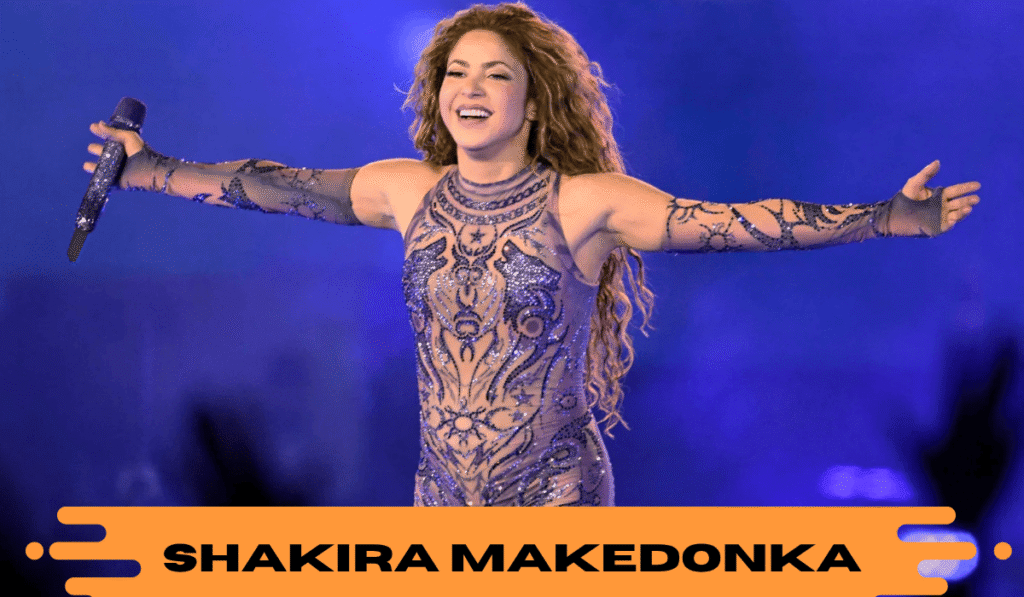Introduction: When Something Sounds Real Enough to Feel True
Sometimes I come across a phrase that stops me. Not because it’s important, but because it feels like it should be. That’s what happened the first time I saw someone mention shakira makedonka.
There’s no official record of such a name. No confirmed person. And yet, there it was—circulating through digital whispers, sounding part Balkan, part pop star, part something else entirely.
That’s what pulled me in. Not the search for facts—but the feeling that this phrase, despite having no foundation, had presence. And in today’s internet culture, sometimes presence is all it takes to matter.
So, Who Is Shakira Makedonka?
Truthfully? No one. And maybe that’s the point.
It’s not a person, not a celebrity alter ego, not a stage name. It’s more likely a joke, a fan-made remix, or a wild auto-correct accident that spiraled into something… oddly believable.
The name blends Shakira, one of the most globally recognizable musicians—Colombian, Lebanese, fiercely original—with the Slavic-sounding “Makedonka,” which loosely translates to “Macedonian woman.”
There’s no link between the two. And yet, when said aloud, shakira makedonka sounds like a real figure: mythical, cross-cultural, and maybe just a little magical.
The Real Shakira: Always a Mosaic of Cultures
If the internet birthed this fictional hybrid, it’s only because the real Shakira has always represented something global. She’s fluent in multiple languages, blends genres effortlessly, and carries both Arabic and Latin rhythms in her voice.
Shakira never needed to belong to one place. That’s what made her powerful.
So maybe shakira makedonka is a strange compliment—a chaotic tribute to how limitless her image feels. A playful rebranding that accidentally highlights what made her iconic in the first place: her ability to be everywhere and still be entirely herself.
Why We Create Things That Aren’t Real
“Shakira makedonka” might’ve started as a meme, but its staying power says something deeper. In a world where information is instant, what stands out isn’t always truth—it’s texture. A name like this:
- Feels like it belongs somewhere
- Sounds like folklore or legend
- Offers no context, so we provide our own
- Lets us remix meaning without rules
That’s why it spreads. Because the internet loves blanks. We fill them in with curiosity, jokes, or symbolism. And then we share them.
A Table of What This Name Could Be
| Imagined Role | Why It Works |
|---|---|
| Pop icon persona | Because Shakira is globally known; Makedonka adds edge |
| Digital folklore figure | She feels invented, mysterious, and mythlike |
| Cultural remix | The name feels like it belongs to many places at once |
| A social media character | Fits the mold of satire, play, and creative alter-egos |
| A symbolic fusion | Reflects identity that isn’t limited by geography |
This Isn’t About Facts—It’s About Feelings
I’m not here to fact-check a name that was likely never meant to be fact. I’m here because I think the way we attach meaning to names—real or not—is important.
When someone says “shakira makedonka,” they’re not quoting a source. They’re responding to a feeling. That feeling might be nostalgia, laughter, curiosity, or just the weird comfort of something that sounds right.
Isn’t that how all myths begin?
Shakira, and the Art of Being Reimagined
It’s no coincidence this kind of remix happened with Shakira’s name. She’s been reimagined, rebranded, and redefined across decades.
- From belly dancing in “Ojos Así” to Super Bowl stages
- From Spanish ballads to English chart-toppers
- From political lyrics to global anthems
She’s always blurred lines—between genre, identity, even expectation.
So if the internet invented shakira makedonka, maybe it’s because Shakira made that kind of remix possible.
FAQs About Shakira Makedonka
Q1: Is shakira makedonka a real person?
No—there is no public figure or artist with this exact name. It likely emerged online through joke or imagination.
Q2: Is it related to the real Shakira?
Not directly. But it echoes her influence—blending language, sound, and culture.
Q3: Why do people keep searching for it?
Because it sounds legitimate. It feels like a person or character we almost know.
Q4: Can I use the phrase creatively?
Yes. It’s a made-up name—open to interpretation, humor, and artistic reuse.
Conclusion: Let It Be What You Want It to Be
There’s something beautiful about the unexplainable. A name like shakira makedonka may never have a Wikipedia page or official definition—but that doesn’t mean it’s meaningless.
It reflects our need to create, play, and imagine. It speaks to the way names carry identity—even when the identity is fictional. And maybe, just maybe, it reminds us that in a world full of real noise, something fictional, strange, and undefined can still echo loudly.
So if you see the name float by again, smile. You’re witnessing a moment where the internet did what it does best: turn nothing into something worth thinking about.


Pingback: Diving into the Heart and Soul of Kris Kristofferson Lyrics